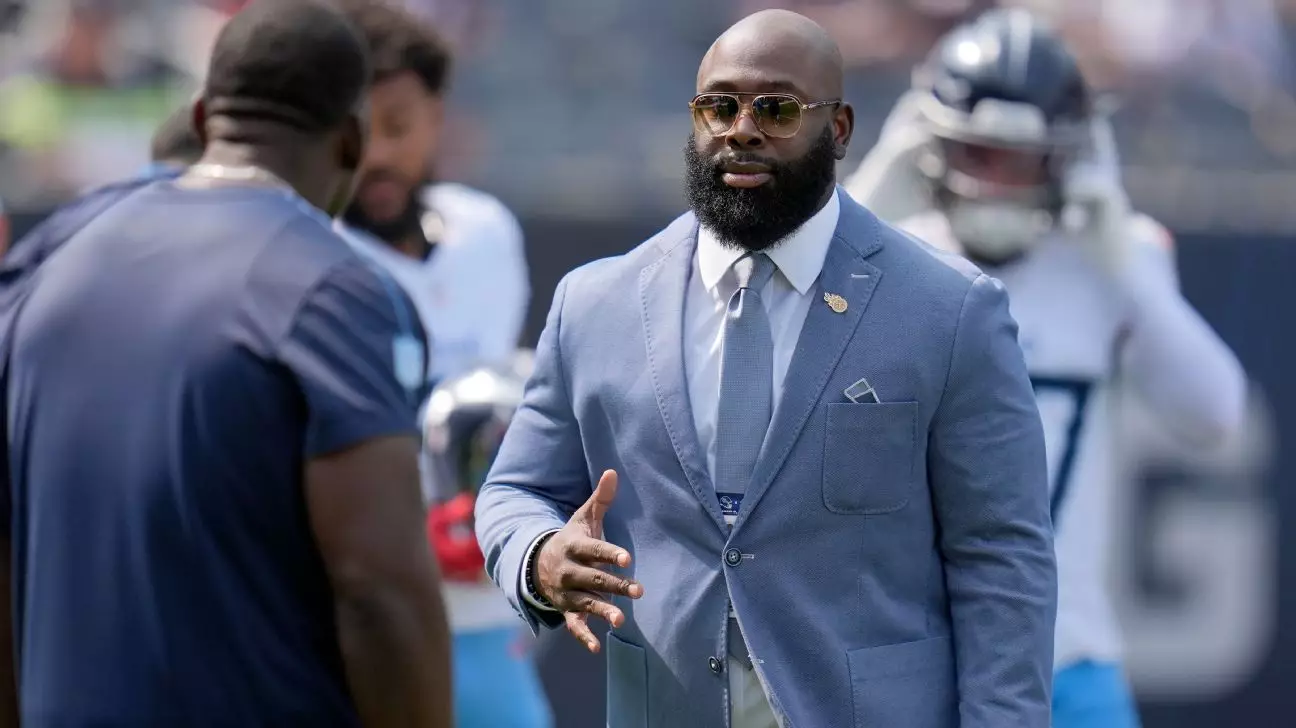The Tennessee Titans have taken a decisive step in reshaping their leadership by terminating general manager Ran Carthon’s contract after a dismal 3-14 season. This decision came hard on the heels of a season that culminated in earning the No. 1 pick in the upcoming 2025 NFL Draft—a stark contrast to the aspirations of a franchise once seen as on the rise. Amy Adams Strunk, the controlling owner, conveyed her disappointment in the team’s lack of improvement, noting that the glaring win-loss record during Carthon’s tenure is “impossible to ignore.” The Titans are evidently seeking a fresh start, and this move signals a critical pivot point as they grapple with rebuilding expectations and a franchise faltering under pressure.
The leadership framework within the Titans has seen significant changes, with current head coach Brian Callahan remaining at the helm while new general manager responsibilities are on the horizon. Chad Brinker, president of football operations, will be at the forefront of this search for a new general manager. His comments indicate a desired shift in the attributes sought in the role, focusing on candidates with deep scouting backgrounds and a proven record of evaluating talent. However, Brinker’s assertion of maintaining “final authority” on the roster highlights potential issues regarding organizational clarity, especially when juxtaposed with the responsibilities of the newly appointed general manager.
This dual-structure approach raises questions about how the balance of power will play out. With Brinker steering the football operation’s direction while empowering the new general manager to make daily roster decisions, one might wonder if this clear delineation will foster a collaborative environment or create friction that could hinder the decision-making process. Effective cooperation between the head coach and general manager is crucial for success in the NFL, and the Titans will need to employ careful management of this relationship moving forward.
When evaluating Carthon’s performance, it’s essential to contextualize his tenure within broader franchise dynamics. From the moment he was hired in 2023, the Titans faced a tumultuous set of circumstances, including the mid-season firing of former GM Jon Robinson and a playoff elimination in a subsequent collapse that included seven consecutive losses. Despite these complications, the 6-11 record in Carthon’s first season did not paint an optimistic picture for his leadership.
Statistically, the Titans have seen steep declines, with a staggering record of 9-25 over the past two years. Such performance signals not only the inadequacies in roster construction but also questions the effectiveness of coaching strategies. The plight of the Titans draws parallels to situations faced by struggling franchises; leadership cohesion, a robust talent pipeline, and adaptable strategies are essential for rebuilding.
As the Titans head into the 2025 NFL Draft with the top pick, their decisions will undoubtedly set the stage for a new era. The interest in players like Shedeur Sanders, son of renowned coach Deion Sanders, symbolizes the types of franchise-changing figures they may target. For the new general manager, understanding the weight of this pick against the backdrop of previous failures will be imperative for injecting enthusiasm back into the fan base and generating tangible success.
The choice of player in this draft will not only impact the immediate future but will also be a true reflection of the new leadership’s vision. There is a subtle yet undeniable pressure on the franchise to leverage this critical opportunity wisely and to embark on a rigorous evaluation of college talent—a commitment that seems foundational in the criteria sat forth by Brinker.
For the Tennessee Titans, this leadership shift represents an invaluable inflection point amid a backdrop of dwindling success. While the decision to part ways with Carthon comes with its criticisms, the organization clearly recognizes the necessity of cultivating a strong leadership structure that can weather adversity and steer this franchise back on course. In a league defined by its competitiveness, the Titans must address not only their performance but also the internal mechanisms that influence success. Only through a comprehensive reevaluation of talent acquisition strategies, franchise culture, and a commitment to improving on-field performance can the Titans hope to reclaim their place as a contender in the NFL landscape.


Leave a Reply